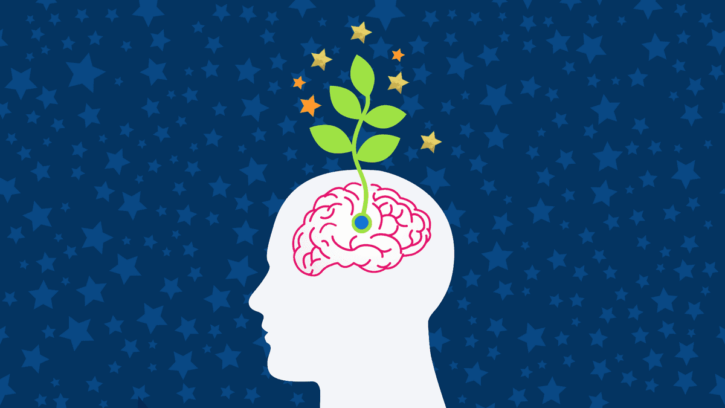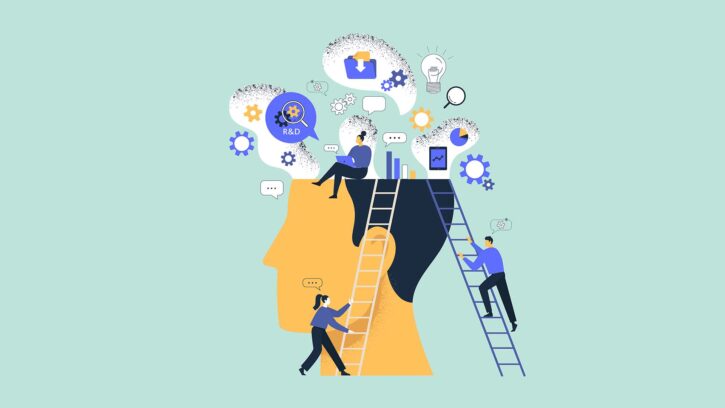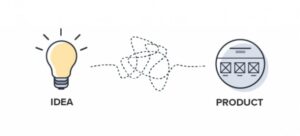
Source: forbes.com
Leadership is one of the most important skills any individual can have. It’s the ability to motivate others to achieve common goals and make significant contributions. And it doesn’t stop at the executive level; everyone in a company, from the frontline employees to the top brass, can benefit from having a growth mindset.
A growth mindset is defined as a mindset in which individuals believe their ability to achieve their goals is based on how hard they work, not on their innate qualities or circumstances. If you’re looking to be successful as a leader, then you need to adopt a growth mindset and encourage your team members to do the same. By doing so, you’ll be able to build an environment that fosters creativity and innovation, both of which are essential for success.
What is a Growth Mindset?

A growth mindset is a belief about oneself that promotes effort and constant learning, instead of fixed or static beliefs that hinder success. These mindsets are critical for leadership development because they help them to view obstacles as opportunities for growth.
Leaders with this mindset adopt an optimistic perspective, believing that with hard work and perseverance, anything is possible. They also have a strong belief in themselves, which allows them to take risks and challenge themselves. They see their mistakes as learning opportunities, not sources of shame.
The Benefits of a Growth Mindset
This is one of the most important factors in achieving success. It is the belief that your abilities can grow and develop, if you put in the effort. It has many benefits, including:
- You are more likely to be successful. A growth mindset is associated with a propensity for success, regardless of initial circumstances. As you adopt this mindset, you shift from viewing yourself as a fixed entity who cannot change, to viewing yourself as capable of growing and developing. This shift allows you to set goals that are challenging but within your reach and to take actions that will help you achieve them.
- You are more optimistic and resilient. It is also linked with optimism and resilience – qualities that can help you handle difficult situations well. Optimism leads you to believe that things will work out for the best, even when they don’t turn out as planned at first. Resilience helps you bounce back after setbacks – something that’s critical when pursuing high-risk projects or when facing tough competition.
- You are less likely to give up on your goals. When goals feel insurmountable or impossible, a growth mindset can lead you to try harder rather than give up completely. Instead of thinking of failure as an outcome that will ruin everything, embrace it as a learning experience that will make you stronger in the future.
- You are more likely to take action. A growth mindset is also linked with taking action – whether it’s making a new commitment to exercising regularly or taking the plunge and starting a business. When you believe that you can achieve anything, you are more likely to take the necessary steps to make that happen.
The Importance of a Growth Mindset in Leadership

This type of mindset leads people to be constantly striving for new levels of success, which leads to increased productivity and better performance.
It has been shown to be a key factor in leadership success. A study by Hay Group found that individuals with a growth mindset are more likely to be successful in their jobs. They also tend to be more innovative, resilient, and persistently positive. These qualities are essential for leaders who want their teams to perform at their best.
Another study found that happy and successful employees have a growth mindset, while unhappy employees have a fixed mindset. A fixed mindset is when someone believes that they are not capable of improving or changing and will never reach their full potential. This type of mentality can lead to disappointment, frustration, and ultimately decreased productivity.
If you want your team to achieve its goals, it is important to promote a growth mindset among your leaders. By fostering this attitude in yourself and your team members, you will create an environment where everyone is driven to succeed.
How to Develop a Growth Mindset?

The growth mindset emphasizes effort, resilience, and learning. It has been shown to be related to positive outcomes such as increased creativity, innovation, and persistence.
There are four key elements of the growth mindset:
- Belief in one’s ability to grow: Individuals with this mindset believe that they can learn and improve their abilities. This will help them be more resilient when faced with challenging situations and make better decisions based on their knowledge and skills.
- A focus on effort: The second element is a focus on effort. Individuals with this mindset understand that hard work and perseverance are necessary for success. They will not give up easily no matter how difficult the task seems at first. This attitude will also help them learn new things faster and improve their skills faster than those who do not have a growth mindset.
- Resilience: Individuals with this mindset know that they can bounce back from setbacks and hardship even if it takes some time. This attitude will help them manage stress better and stay motivated throughout tough times.
- Learning orientation: Individuals with this mindset are proactive learners who are interested in expanding their knowledge base and improving their skillsets. This helps them stay motivated and keep up with the latest changes in their field.
Conclusion
Leadership is all about inspiring others to achieve their goals and helping them grow. A growth mindset is key to success as it makes you believe that challenges can be overcome and new opportunities can be seized. As we have seen throughout this article, having a growth mindset goes hand-in-hand with setting ambitious goals, taking personal responsibility for your actions, and remaining resilient in the face of setbacks. If you want to lead others towards success, start by adopting a growth mindset yourself!







